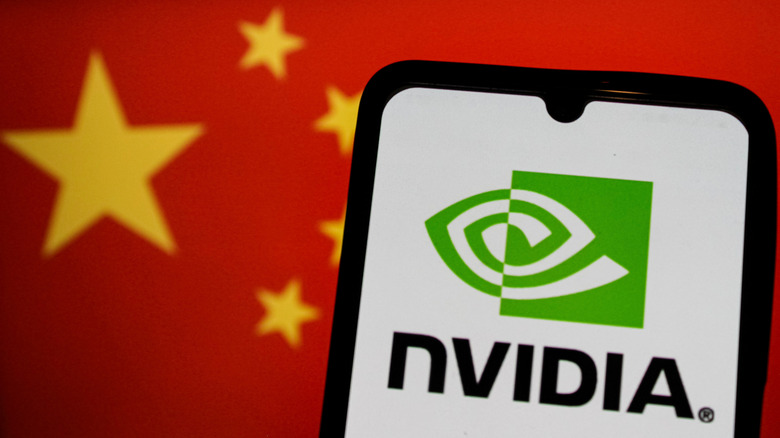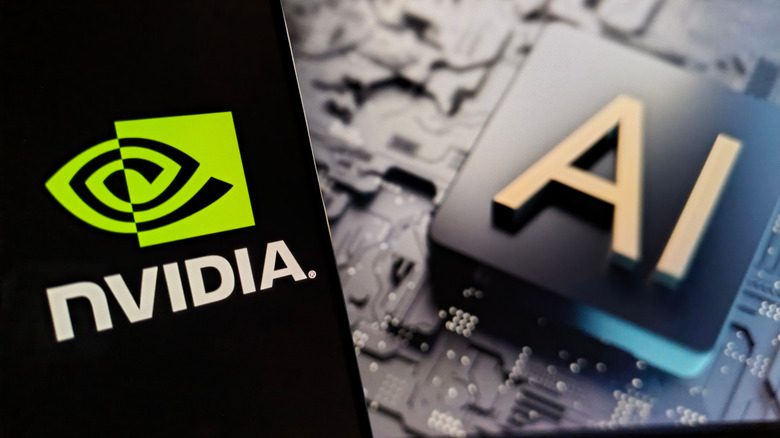Why Nvidia's AI Graphics Cards Are Now Banned In China
China is the second largest economy in the world and has recently been investing large sums of money into the AI space. Some of that investment is being funneled into creating domestic chips focused on AI technology, including DeepSeek, which made waves in the tech world after being unveiled in January 2025 as a direct competitor to ChatGPT. It's release prompted the Trump administration to consider banning DeepSeek in the United States.
China claims that DeepSeek uses far fewer chips than what is being used in competitor platforms, while the company claims its DeepSeek R1 model can run on a single chip. This revelation sent shockwaves through the industry and gave the country leverage to take on international chip makers. In September, China made another move by announcing that government-run company Alibaba had created a new chip that can match Nvidia's H20 platform, which was designed specifically for the Chinese market.
This announcement comes on the heels of the country instructing ByteDance, Tencent, and other Chinese companies to halt any future orders of Nvidia chips, and to end the use of Nvidia chips in testing and development of AI technologies. Nvidia is the current market leader in providing AI hardware, but China now feels that its domestic chips can compete on equal footing, which led to the country banning Nvidia imports.
Officials claim Nvidia violated anti-monopoly laws
This current AI chip boom in China goes back to 2022, when the United States blocked the country from access to high-end semiconductors. The move looked to prevent China from using the technology to bolster its military program with advanced AI systems. Reports at the time suggested that China was years behind the United States in producing high-end chips to compete with the likes of Nvidia.
But the Nvidia chip ban in China seems to go beyond simply focusing on domestic chip manufacturing. In September 2025, China's market regulator announced that Nvidia was acting illegally inside the country. They noted that the company had violated strict anti-monopoly laws during a recent probe into company operations after Nvidia acquired Israeli tech company Mellanox Technologies. Chinese officials originally had signed off on the deal in 2020, and it's unclear how Nvidia may have violated anti-monopoly laws.
China has improved its capabilities to produce chips and build AI technology, even announcing a new AI model that's cheaper to run than DeepSeek. So, many experts believe that the Nvidia ban is about more than simply closing the technological gap. China may be using the ban as a negotiation tool in the trade war with the United States. Reporting by the New York Times suggests that Chinese companies may be sidestepping import restrictions through third parties and smuggling networks, signaling that the country might not be as close to matching Nvidia as they make it seem.

